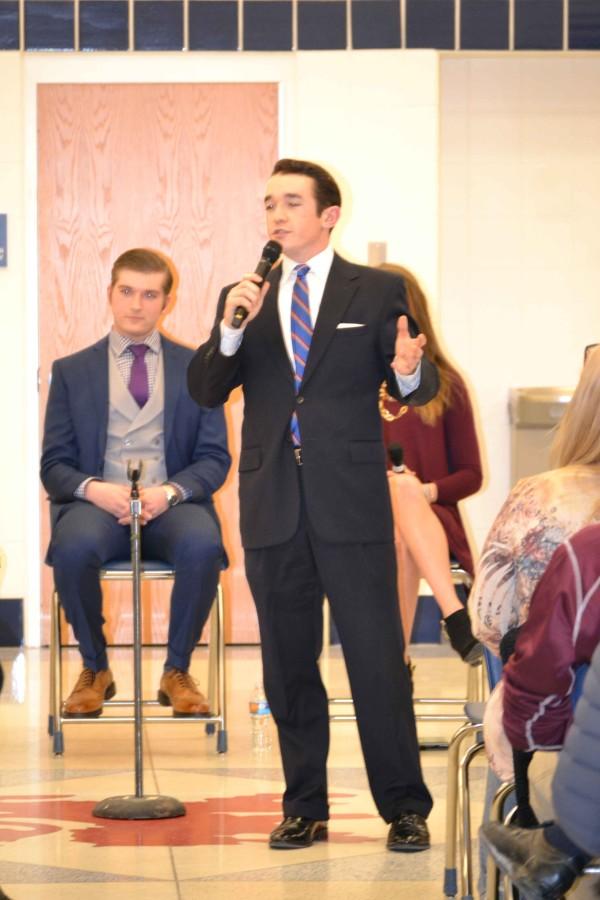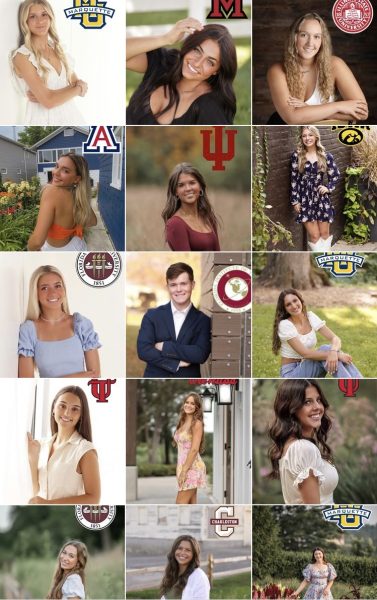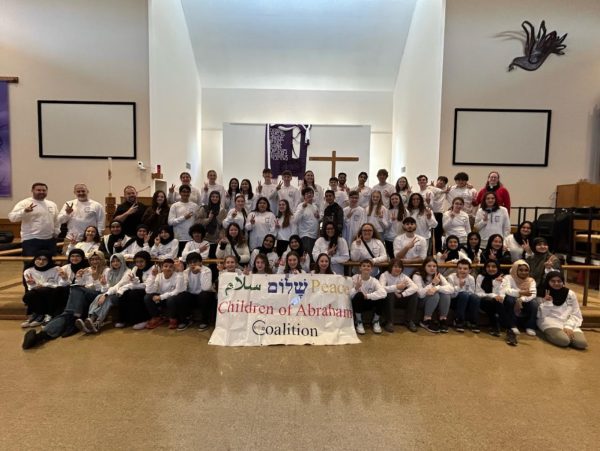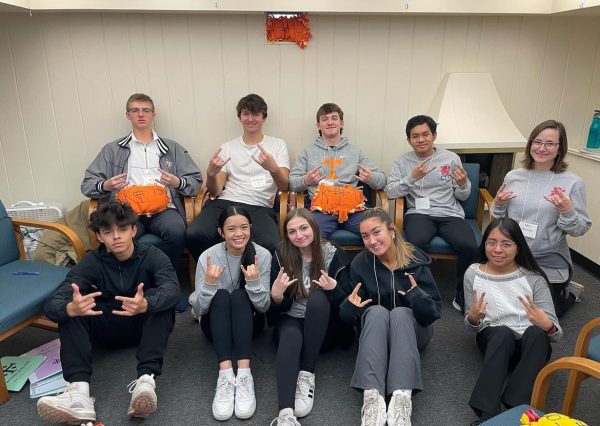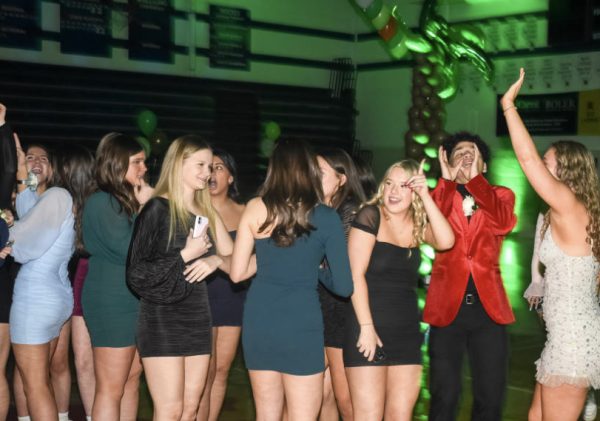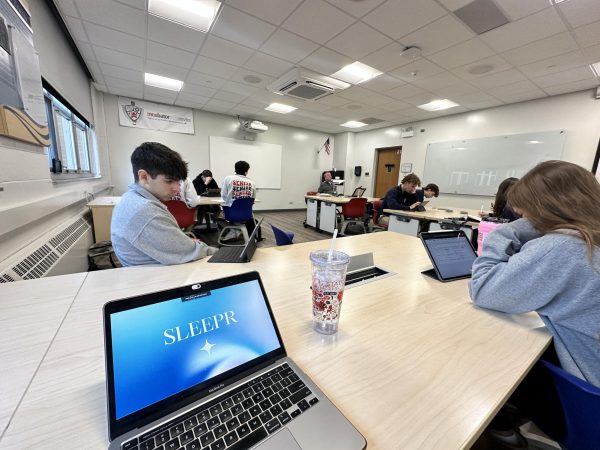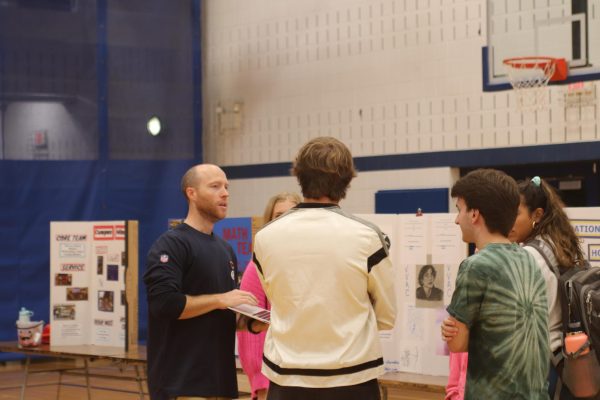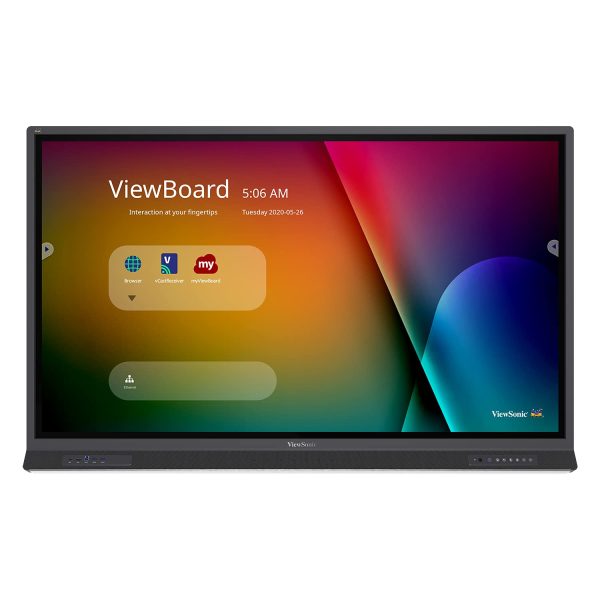Senior symposium stimulates discourse
On Jan. 28, Saint Viator students and their parents proved that they were up to a challenge of global proportions. That Thursday, the Querbes program along with their teachers hosted a symposium to discuss and debate issues circulating the evening news and the school hallways.
“It was really put into fruition by Liam Warner,” said senior Mark Perkowski. “He chose a lot of us as panelists from the Querbes homerooms.”
Perkowski himself participated as a panelist, debating topics with his fellow panelists before opening the issue to the general audience at the end of the discussion. With so many keen minds hard at work, the symposium’s challenging topics no doubt helped them sharpen their skills.
“The purpose of the debate was to examine and address the challenges presented to Western culture and governments as an increase in influences emerges from the East,” said English teacher Mr. Patrick Neville, head of the Querbes program.
Mark Perkowski cut the steak into more chewable pieces.
“The general topic started as relations between the West and the Middle East, but it narrowed down into ISIS, the immigration crisis that Europe is experiencing and the presence of radical extremists in the U.S.,” said Perkowski.
Undaunted by the cataclysmic scope of such a topic, the students forged ahead with the discussion—apparently a lot of students. For a pilot opening of such an event, everyone was at the edge of their seat—if they even had one.
“People were pulling out more chairs and setting up more,” said English teacher Mrs. Jennifer Kottra. “There were almost 100 people. Parents attended too, along with their children.”
Evidently, it wasn’t just Querbes scholars and teachers filling those blue plastic chairs.
“I think it’s great that we give students a platform to speak their minds,” said Mrs. Kottra. “Outside of the classroom, when do [students] ever have an opportunity to do that in a formal setting? It was a great opportunity to practice debating skills, public speaking and expressing [themselves].”
The symposium’s success was praised, with some room for improvement.
“It was very informative to see the different approaches that some of the top students took on helping the situation in the Middle East,” said junior Querbes scholar Anthony Graffia.
“I think it went quite well, and any worries we had immediately disappeared,” said Perkowski. “It was pretty enlightening, but we could have been a little bit more specific and stayed on one topic at a time.”
“It would have been interesting to see more audience participation,” said Mrs. Kottra. “But hey, it was the first time. I thought they did a great job, considering it was student run and student led.”
Indeed, if a student had a thought about worldwide political tension or radical extremism, the symposium was the place to voice it. Any and all opinions were open to debate and, in general, fairly considered.
“There was a lot to talk about, and many of the issues were quite controversial,” said Perkowski.
One topic was inevitable.
“The discussion focused a lot on ISIS,” said Mrs. Kottra. “You aren’t even sure who to believe, or what news outlet you can trust, and it’s scary. Be as informed as you can. That’s the key before making any rash decisions.”
For many, 2016 is the time more than ever to remain informed. Dozens, if not hundreds, of upperclassmen will vote in the presidential election, a time that is calling upon its youngest members to make crucial decisions about the future.
“Many of us are going to be of voting age this year and will be able to participate in the election,” said Perkowski. “We should be choosing candidates that we hope will best address these kinds of issues.”
Evidently, a student-led symposium provided a crash course for soon-to-be voters on not only having an opinion and making decisions, but on speaking up for one’s beliefs. Students aren’t products of the future anymore—they are its creators.
“We have to take it into our own hands,” said Perkowski.
Your donation will support the student journalists of Saint Viator High School. Your contribution will allow us to purchase equipment and cover our annual website hosting costs.



